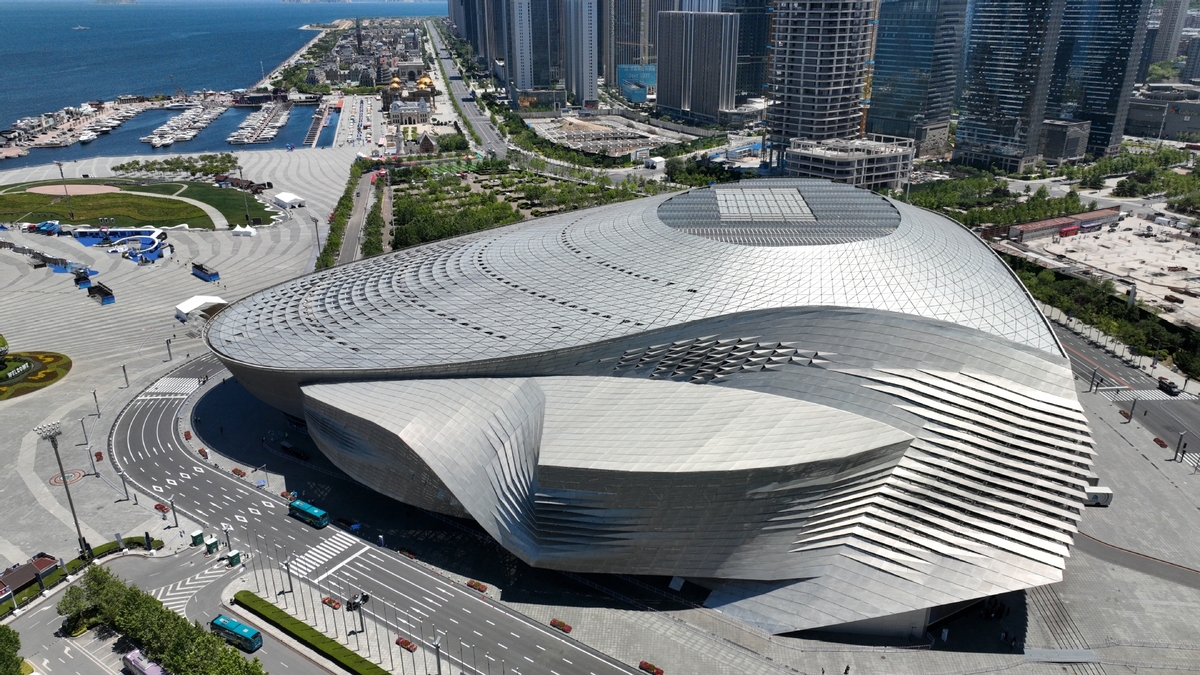
Greater global cooperation in trade and investment is needed to bolster the world's economic recovery and deal with mounting challenges like decoupling, supply chain disruptions and geopolitical tensions, said speakers at the 15th Annual Meeting of the New Champions, also known as the Summer Davos Forum, in Dalian, Liaoning province, on Tuesday.
Ren Hongbin, chairman of the China Council for the Promotion of International Trade, said China's foreign trade is facing both challenges and opportunities. Regional conflicts, climate change, rising protectionism and unilateralism have a huge impact on trade routes, international trade systems and global industry chains, he noted.
READ MORE: Li: Chinese economy to bring new opportunities
Ren said the number of developing countries and emerging markets accounted for 56.7 percent of China's foreign trade partners, surpassing that of developed countries, while the exports of high value-added products like mechanical and electrical products have taken up about 60 percent of China's total exports.
China has been the world's largest exporter since 2009, and is now the second-largest importer. According to Ren, the Association of Southeast Asian Nations has become China's largest trading partner, followed by the European Union, the United States, Japan and South Korea.
China has played a vital role in ensuring the stability and security of global industry and supply chains, Ren said, adding the country has shown its willingness to strengthen cooperation with the US in the field of trade and investment to achieve win-win results.
Data from the General Administration of Customs showed that China's total trade in goods reached 17.5 trillion yuan ($2.4 trillion) in the first five months of this year, up 6.3 percent year-on-year.
The country's exports rose 6.1 percent year-on-year in the January-May period, while imports climbed 6.4 percent.
China ranked as the largest manufacturer for the 14th consecutive year in 2023, when its manufacturing output accounted for nearly 30 percent of the global total, according to the Ministry of Industry and Information Technology.
Li Dongsheng, founder and chairman of consumer electronics maker TCL Technology Group Corp, said globalization is an irreversible trend and any protectionist policies that aim to change the routes of global trade will not be sustainable.
Li emphasized that China's manufacturers should shift from exporting products to exporting industrial capacities, establish industry chains overseas and boost the development of local economies, so as to cope with changes in the global economic landscape amid rising trade protectionism.
ALSO READ: Consumption's big role in focus
Li said TCL has stepped up efforts to strengthen its capacity in global operations. In the past two decades, the company has established more than 20 manufacturing bases around the world, with sales of terminal devices, including electronic products and home appliances in overseas markets, accounting for more than 60 percent of its revenue.
Maggie Chen, professor of economics and international affairs at George Washington University, said: "We are seeing export growth in certain industries that are contributing to green energy and clean energy products. China has been able to significantly improve the efficiency and productivity in producing these green products."
Contact the writers at fanfeifei@chinadaily.com.cn


